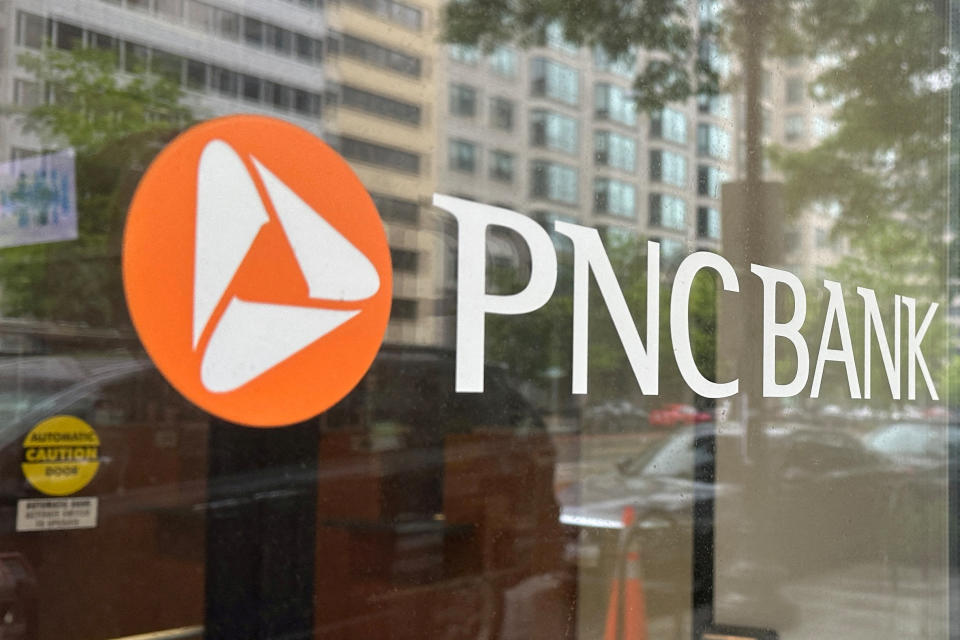Why regional banks are now willing to take billions in losses

More US regional banks are taking a step that was unthinkable more than a year ago in the aftermath of the Silicon Valley Bank failure: selling underwater bonds at a loss.
When Silicon Valley Bank did it, it spurred a panic among investors and depositors.
The difference this time around is that regional banks aren’t selling lower-yielding securities to pay depositors. Instead they are preparing for interest rate cuts from the Federal Reserve.

Some cash from these sales is being used to buy new bonds that lenders hope will perform well as rates come down in the coming months or years. The Fed is expected to start cutting rates as early as September.
“If they’ve got extra cash, bank treasurers who think we’re at the top of the cycle may decide to go ahead and lock in long-duration bonds so that once we’re in a lower-rate environment they still have a decent yield,” Feddie Strickland, an equity research analyst with Hovde Group, said.
Locking in ‘the swoosh’
Regional banks that announced bond sales in recent weeks include Pittsburgh-based PNC Financial Services Group and Charlotte-based Truist (TFC), two of the top 10 biggest lenders in the US, along with Regions (RF) and Webster (WBS). More are expected to do the same.
PNC took a half-billion dollars in losses on its bond sales and reinvented the proceeds into securities with yields “approximately 400 basis points higher than the securities sold,” according to the bank.

That raised the bank’s confidence that it would reap a record amount of net interest income next year. Such income measures the difference between what a bank earns from its assets and pays out on its deposits — a critical source of revenue for any regional bank.
One analyst on PNC’s second quarter earnings conference call said the uptick over the next year looked like Nike’s “swoosh” logo.
“Essentially, what we’ve done is locked in some of the swoosh,” PNC CFO Robert Reilly told analysts.
PNC’s decision to realize bond losses didn’t impact earnings, thanks to a one-time stock gain it recorded from its Visa (V) holdings.
Other banks are choosing to take these bond losses even when they aren’t able to offset them with one-time quarterly gains.
Truist took a $5.1 billion after-tax loss when it sold bonds that yielded a measly 2.80%.
It used some of the proceeds — $29.3 billion — to buy new bonds yielding 5.27%. The bank now expects its net interest income to be 2% to 3% higher next quarter.

Regions also took a $50 million pre-tax loss to replace approximately $1 billion of bonds.
The CFO of the Birmingham, Ala.-based bank, David Turner, called the “repositioning” move a “good use of capital” and said Regions may look for chances to do more bond sales.
Another bank that sold some underwater bonds was Webster, based in Stamford, Conn. It took a $38.7 million after-tax loss in the quarter from realizing those losses.
Despite replacing more of its bonds with higher-yielding ones, the bank lowered its net interest income expectations for the year by $60 million to $80 million, predicting higher deposit costs and lower yields from its loans.
“We missed the mark on the guidance, obviously, and we’re not pleased with it,” Webster CFO Glenn MacInnes told analysts Tuesday.
When the rate cycle changes
Not all regional banks are making such moves. And the direction of interest rates remains a thorny challenge for many regional lenders still struggling with high deposit costs, troubled borrowers, and lackluster profits.
A reminder of those challenges came again this week when commercial real estate lender New York Community Bancorp (NYCB) reported a second quarter loss, the sale of a mortgage-serving business, and disclosed that it had added more to its reserves for future loan losses.
Its stock fell Thursday after reporting the loss but recovered on Friday. It remains one of the worst-performing stocks of the year, a sign that investors are still concerned about the exposure of some regional banks to commercial real estate weaknesses.
The hope for many regional banks is that the loans on bank balance sheets will recover their value as rates come back down, and that deposit costs could drop too.
“When the rate cycle changes is going to have a big impact on what the profitability story looks like,” said Moody’s Ratings analyst Megan Fox.
How those dynamics play out will still vary a lot between banks. Thus buying new bonds now is one of the surest bets lenders can make ahead of the cuts they expect to happen.
David Hollerith is a senior reporter for Yahoo Finance covering banking, crypto, and other areas in finance.
Click here for in-depth analysis of the latest stock market news and events moving stock prices.
Read the latest financial and business news from Yahoo Finance








